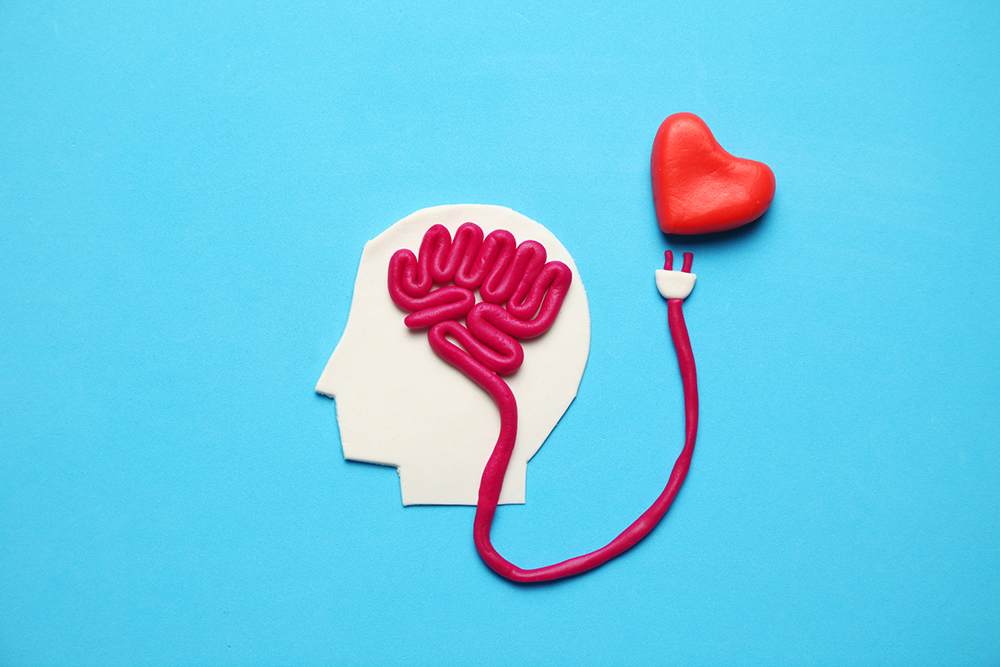

Columns/Blogs
Mental Health
Mental fitness power tool: Building more positive relationships
November 30, 2022
By
Bill Howatt
 Photo: Andrii Zastrozhnov/Adobe Stock
Photo: Andrii Zastrozhnov/Adobe Stock Inadequate positive relationships at home and work contribute to the large number of people in the workplace caught in the mental state of languishing (i.e., feeling blah). While unpleasant emotions are a part of life, good mental fitness habits that include building and maintaining positive relationships can be powerful tools for increasing life satisfaction.
Mental fitness is aligned with the goals of positive psychology to learn how to develop the knowledge, skills, and habits that promote positive emotions and increase people’s opportunity to spend more time flourishing (i.e., feeling charged).
Martin Seligman’s PERMA model uses five components — positive emotion, engagement, relationships, meaning, and accomplishments — to outline the characteristics of a flourishing individual. Improving or developing personal relationships can have a significant impact on increasing happiness and helping a person flourish.
In The Cure for Loneliness, I discuss the role of authentic relationships in charging our mental batteries. Self, family, community, friends in and outside work, and partners are relationships that matter. One common mistake is focusing on developing relationships with others, hoping to find happiness before developing a positive relationship with ourselves. Valuing and enjoying your company improve the likelihood that others will enjoy and appreciate you.
When we think about relationships, most of us think about relationships beyond the self that are also critically important. People are social creators so functioning to our full potential requires other humans. Research suggests that life satisfaction can be predicted by the quality of our positive social networks. Relationships are protective factors that mitigate the risk of cognitive decline as we age.
Social activities that provide positive charge are critical for mental fitness. There may be no better energy source than being around people you enjoy, feel safe with, accept you unconditionally, and care about you. Taking an active role and prioritizing positive relationships are proactive steps for building and maintaining good mental health. Relationships take work. The payoff and benefits are worth the investment, provided we believe the relationships are positive.
Building positive relationships
Sitting home alone or frustrated and upset about relationships does not change them. Your approach and mindset of how you get to know others do. The benefits of self-love and acceptance are factors to keep top of mind. If you struggle with self-acceptance and self-esteem, you can learn to like and love who you are. I recommend working with a mental health professional who may help you discover the experience and programming driving this faulty level of thinking that can hold you back from believing in yourself.
You have the right to pick who you like to be around, as does everybody else. This can be frustrating and painful when people you value do not respond in kind. You will never be everyone’s jam, nor will everyone be yours.
- Pay attention to your emotional deposit — Responding positively to close and intimate relationships increases both parties’ satisfaction. Gottman’s research found the “magic ratio” is 5:1. For every negative interaction during conflict, a stable and happy partnership has five (or more) positive interactions.
- Share positive news — Sharing good news and celebrating success promote strong social connections and positive relationships. Practice finding good news and sharing it with people you care about. The world has many positives, but we must look for them.
- Curiosity in others first — Be interested in others. When meeting new people, focus on who they are and what they enjoy. Listen carefully. Asking questions shows interest and builds a foundation for a social connection. People typically are interested in getting to know others who are not pushy, are humble, and show interest. The more people you meet this way, you will likely find people you click with and build strong social connections with. This activity is good for your health and happiness. Social connections can lower anxiety and depression, regulate emotions, lead to higher self-esteem and empathy, and improve our immune systems.
- Take a structured approach — If you are concerned about your quality of social connections, write out what you are missing: perhaps a partner, workmates you enjoy talking to, a best friend at work, friends, or family. This can help you become objective. Some areas may require dealing with conflict; others may be a desire to meet new people. If you want to build new relationships, start with your circle of acquaintances to explore if there are people with whom you would like to explore building a relationship. It also can be neat to reconnect with people you have not connected with in years to see how they are doing. Reconnecting can lead to rekindling relationships and introductions. Another option is to engage in social network opportunities like joining a class or group. You are not the only person looking to meet people.
 Dr. Bill Howatt is the Ottawa-based president of Howatt HR Consulting.
Dr. Bill Howatt is the Ottawa-based president of Howatt HR Consulting.
Print this page